Singapore presidential campaigning ends as voters reflect on values, ‘antics’, surreal moments
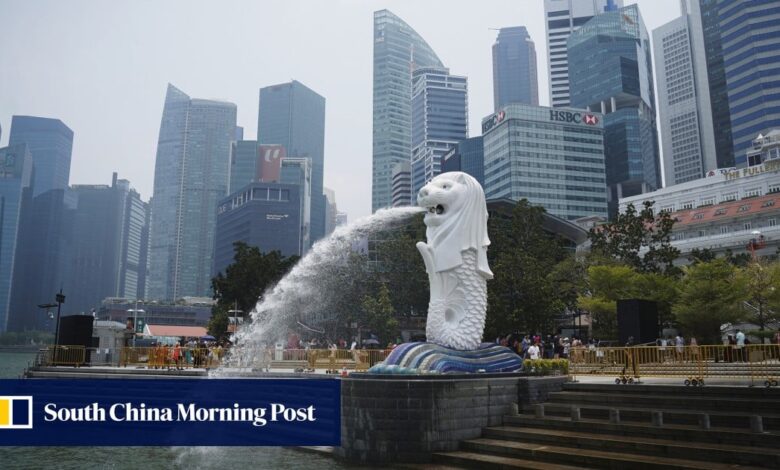
[ad_1]
The three candidates must abide by a 24-hour cooling-off period ahead of Friday’s vote.
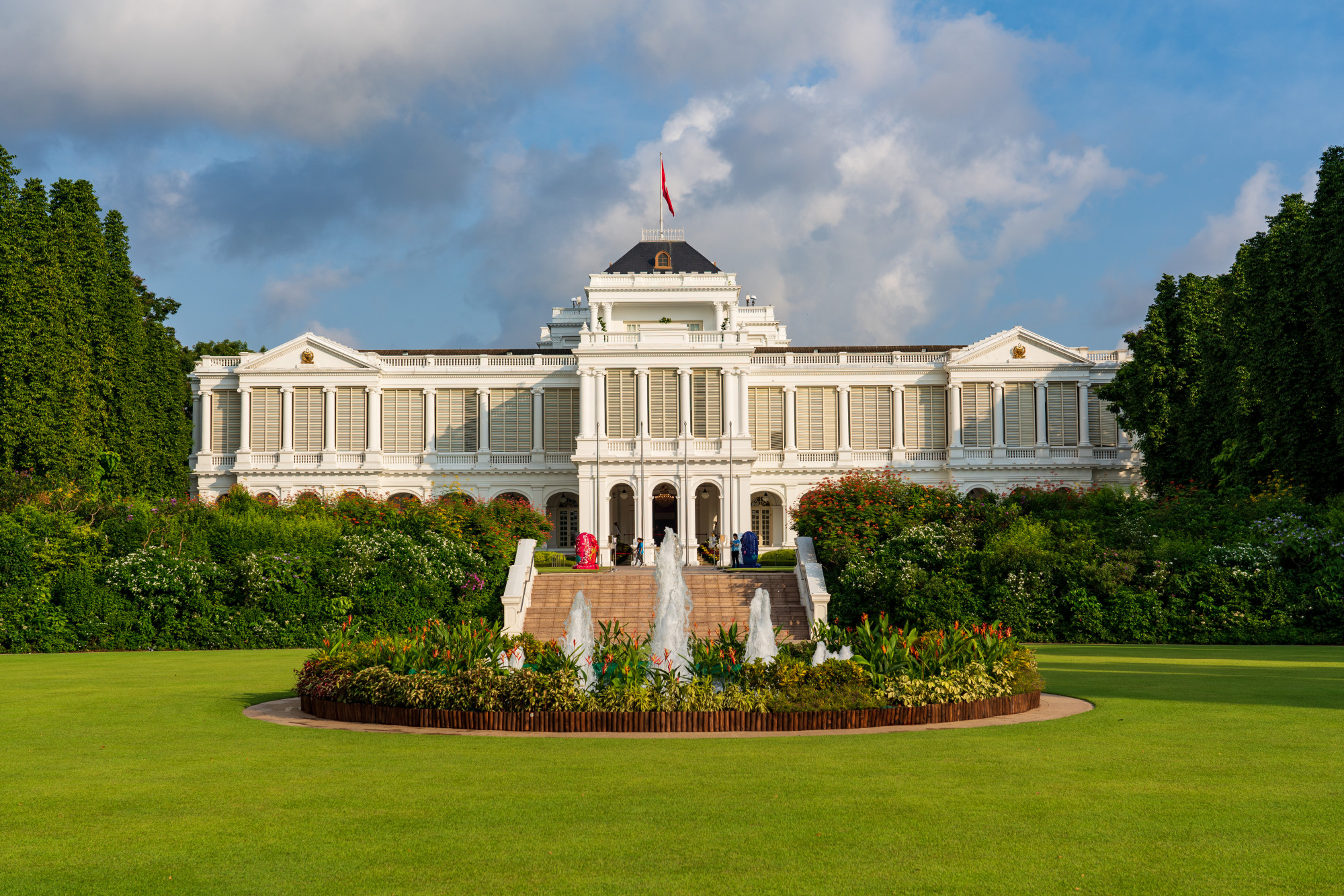
Campaigning has largely been focused on the candidates, their views about the president’s role, and their respective life partners – but on Wednesday messages about Tharman’s civil servant son Akilan circulated on WhatsApp and on social media.
The posts, among other things, questioned whether Akilan’s previous role in the Ministry of Finance’s Reserves and Investment Directorate would create a conflict of interest in the event Tharman won the presidency.
Responding to the posts, the government said in a statement that there had been no “conflict of interest” in Akilan’s work at the ministry, and that a decision was made in July to “rotate him and pre-empt any possible potential for conflict-of-interest situations in the presidential election”.
Akilan is currently working on education and manpower policies in the finance ministry’s social programmes directorate.
In brief comments to the media, Tharman said the matter was a “non-story” and that there was nothing for him to answer to, as the facts had been made clear by the government statement. A spokesman for his campaign later said “multiple rumours” floating on social media about his children were false and baseless.
“We have always called for a contest based on facts and track records of the candidates. Such rumours are unfortunate and bring disrepute to the process,” the spokesman said.
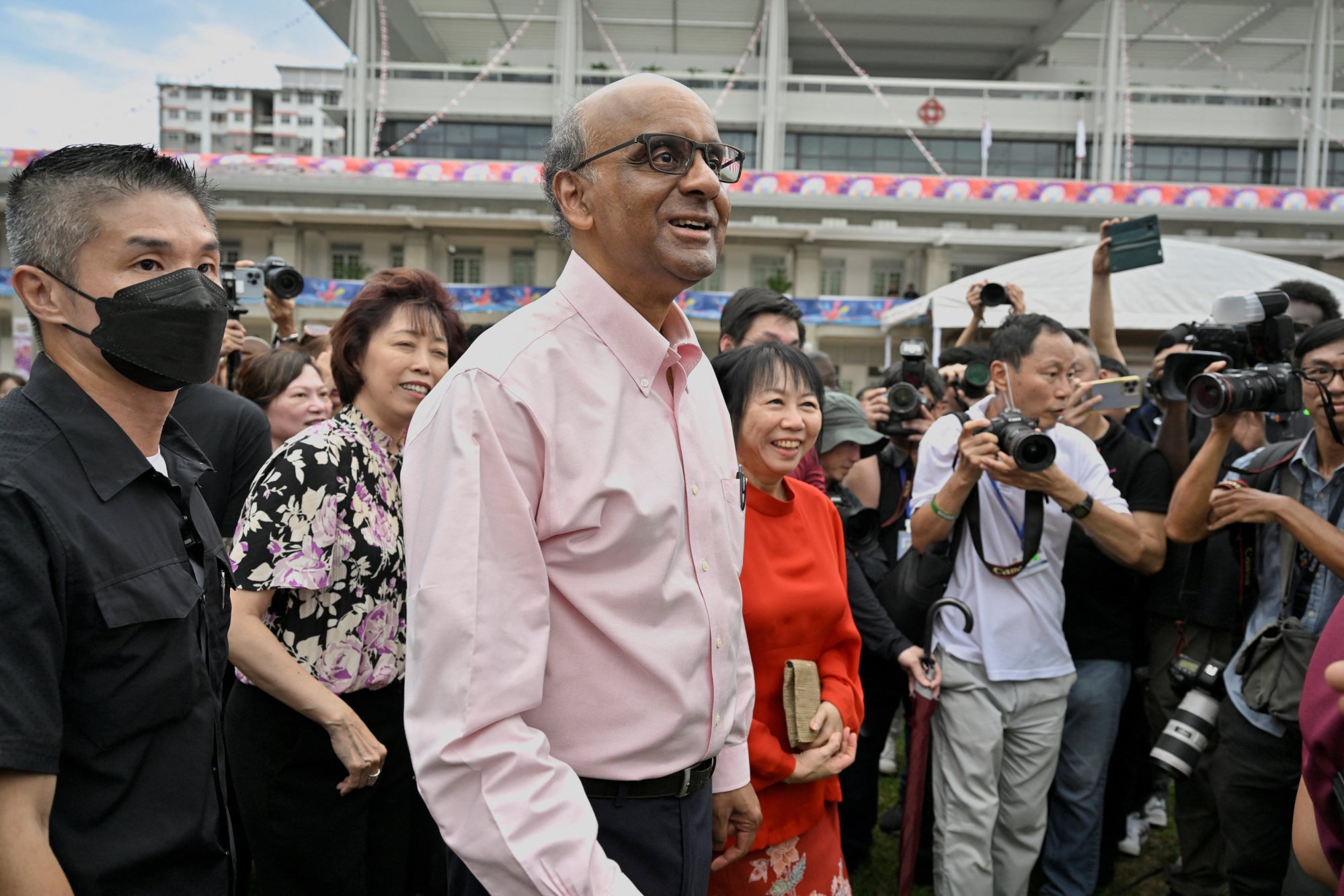
‘Candidate antics’
Voters who spoke to This Week in Asia on Wednesday said the campaign’s most memorable moments had been “antics” by the three candidates to make themselves more personable – especially to younger people.
With the scope for policy discussions limited due to the presidency’s largely custodial role over the executive branch, much of the campaign fodder over the last nine days came from the candidates’ efforts to connect with voters on non-traditional media platforms such as TikTok, and through podcasts.
The candidates’ partners, especially Tharman’s wife Jane Ittogi and Ng’s fiancé Sybil Lau, attracted substantial attention.
While the Singapore’s president’s spouse does not officially carry the title of First Lady or First Husband, they are expected to play a public diplomacy role.
Singapore’s secret reserves take centre stage as presidential race heats up
Singapore’s secret reserves take centre stage as presidential race heats up
Sales communications executive Lim Jia Ying, 24, said while some social media users were at times too preoccupied with the spouses’ looks and demeanour, she particularly enjoyed watching interviews with Ittogi, a lawyer.
“To me, she has the ‘Michelle Obama effect’ and will go a long way in supporting Tharman’s campaign,” she said.
Even the candidates’ pets shared the limelight. In particular, Ng’s cat, “Max Lemon Ng”, became the subject of adoring comments, attracting some 4,700 followers on its own Instagram account. Ng also shared videos of himself speaking to the golden British short hair in the Teochew dialect, and taking it on an evening stroll.
While many were tickled by these posts, others, like Lee Kheng Joo, 59, felt Ng had come across as “too casual” and should have sought to “build his aura” instead.
Ng, the former chief investment officer of the powerful state investor GIC, chose to eschew physical posters, citing environmental concerns, a lack of manpower, and a preference to use social media to reach voters.
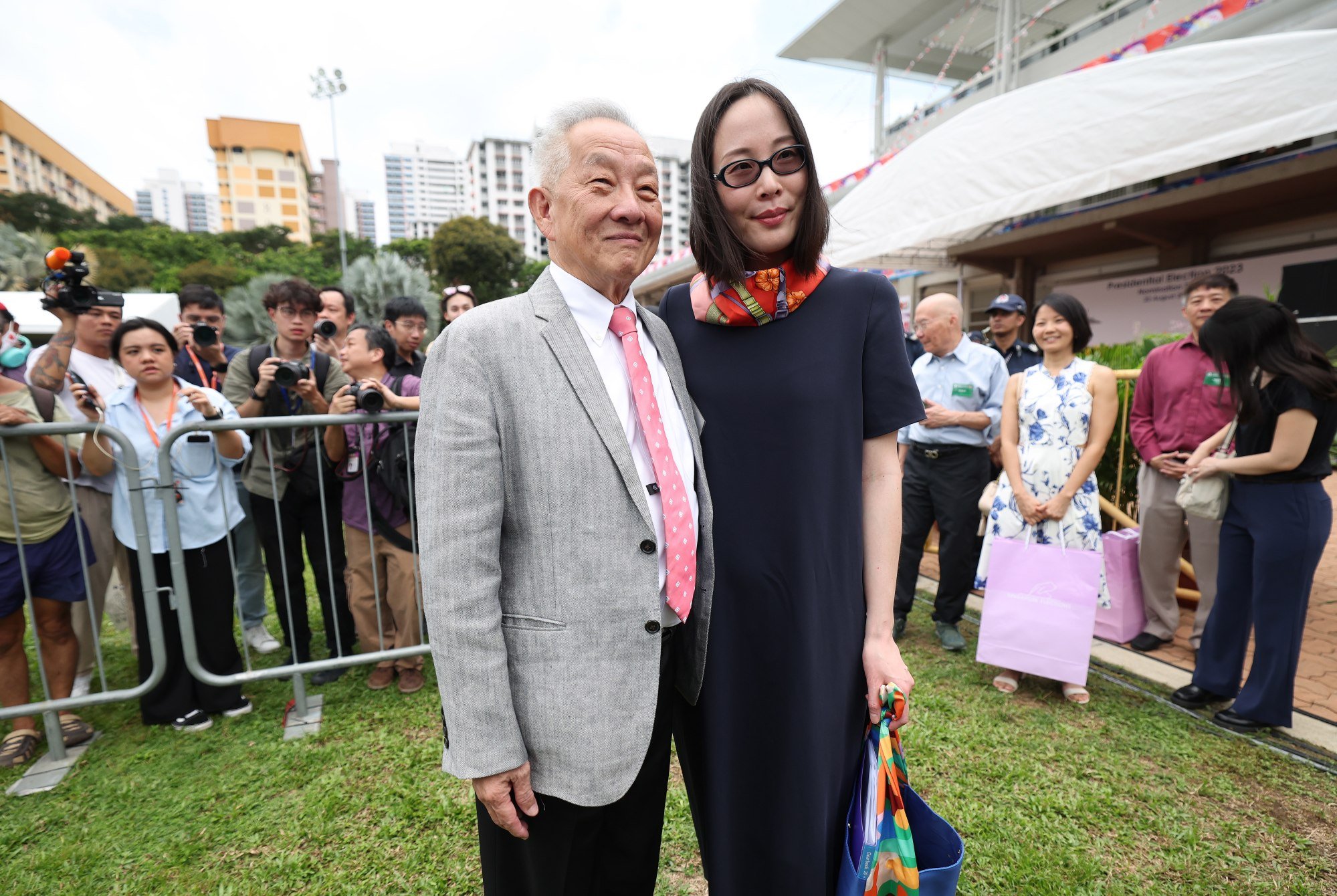
Local content creator Megan Chia, 24, said she was curious if Ng’s strategy to focus entirely on social media would “result in a net gain or loss for his vote share”.
But she noted that online content on the candidates’ comments during in-person forums and informal podcasts gave her a deeper look into their motivations and personalities.
“I was able to better assess whether candidates lined up with values I hold and want to see in Singapore society, as well as who I feel is most well-equipped to fulfil the duties of the president,” she said.
Most of those interviewed agreed that Tan, a former chief executive of the state-linked insurer NTUC Income, was the most polarising of the three candidates. Tan unsuccessfully ran in the 2011 presidential election – and lost his election deposit after recording just 5 per cent of votes.
This time around, he has been the subject of controversy after netizens dug up his old social media posts about “pretty girls” he had encountered in public. Tan has also been lampooned as a “creepy old uncle”. In interviews during the campaign period, he has suggested more women should be home-makers.
Jake Tan, 25, said the election campaign had reinforced his views about the marginal political importance of the presidency. The university student said he monitored news about the presidential election mainly for the latest on Tan’s gaffes – or “Tan Kin Lian tea” – but acknowledged that his candidacy was “funny but worrying”.
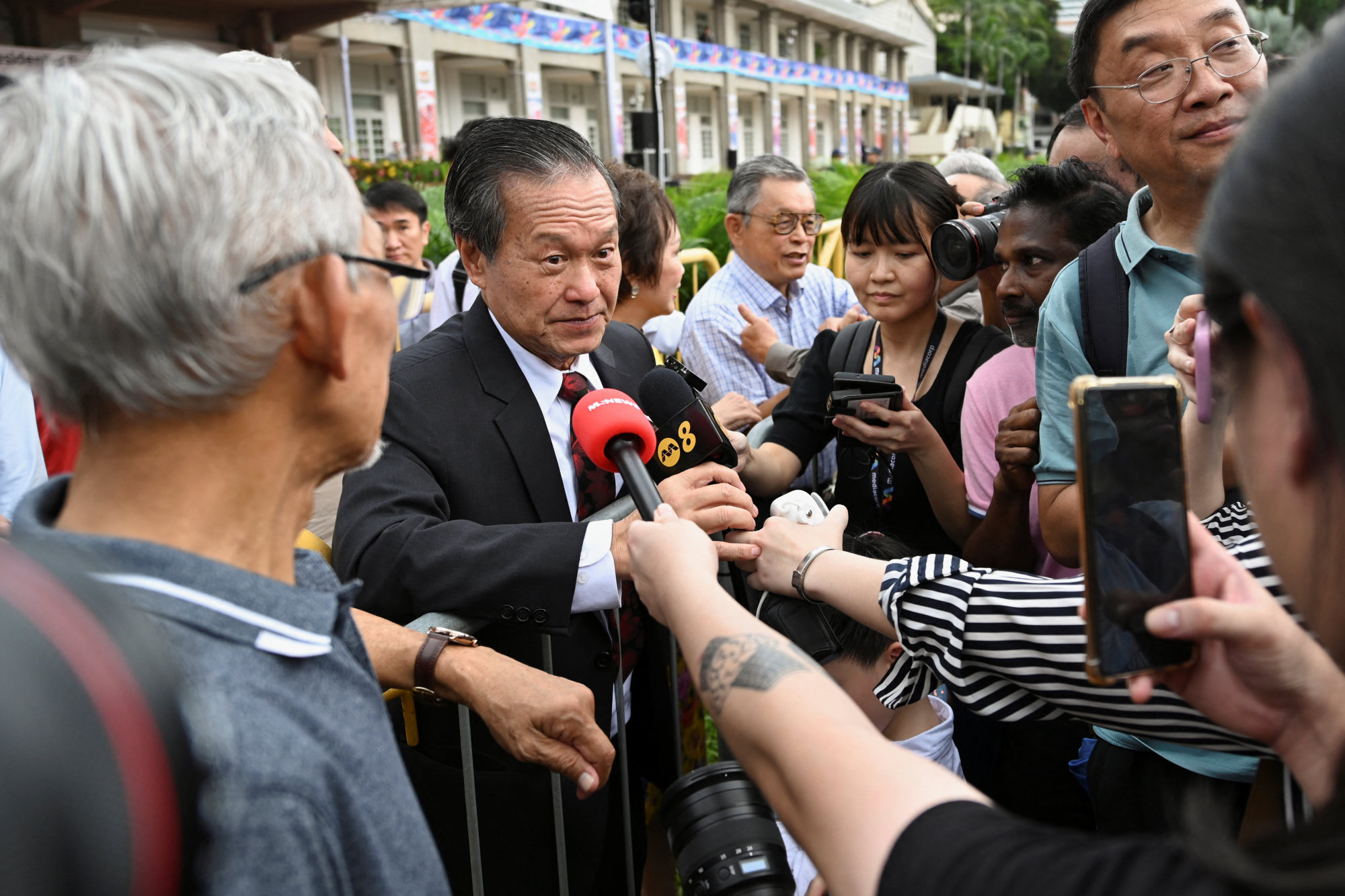
In a televised broadcast hours on Wednesday night, hours before the close of campaigning, Tan said: “To all those who found any of what I have said or done in the past, upsetting or inappropriate, I would like to sincerely apologise.”
Tharman and Ng, both seen as closer to the establishment than Tan – who has been endorsed by some minor opposition parties – reiterated their campaign messages in their broadcast message.
Tharman highlighted his stellar credentials during a four-decade public sector career, his lifelong effort to build a “fair and inclusive” Singapore, and his plan to use his role as president to mobilise support for ground-up initiatives.
Ng’s final pitch focused on his key message that the country needed a president who had not been a member of the long-ruling PAP.
The victor of Friday’s election will succeed the incumbent, President Halimah Yacob, a former PAP MP and parliamentary speaker. All previous presidents since the country gained independence in 1959 were affiliated with the PAP or were closely linked with the party.
[ad_2]
Source link




